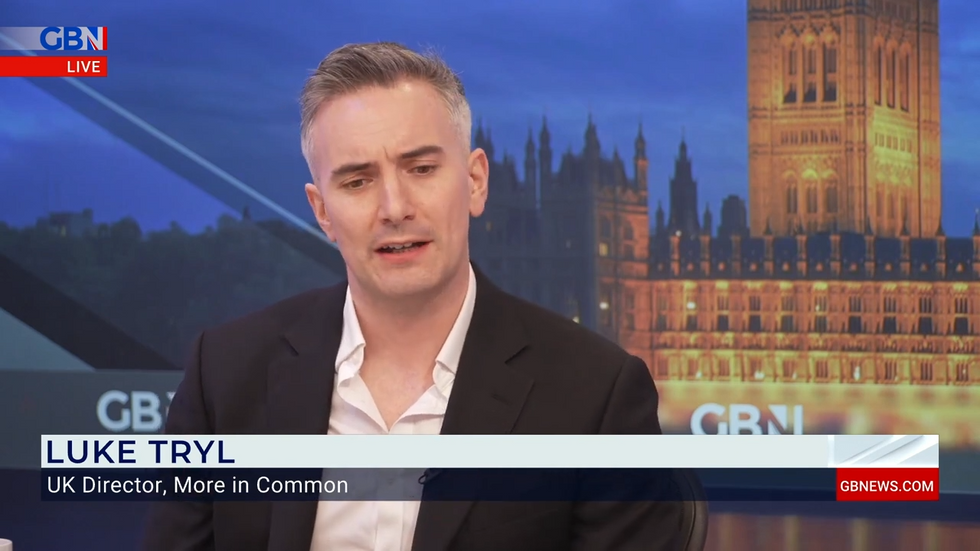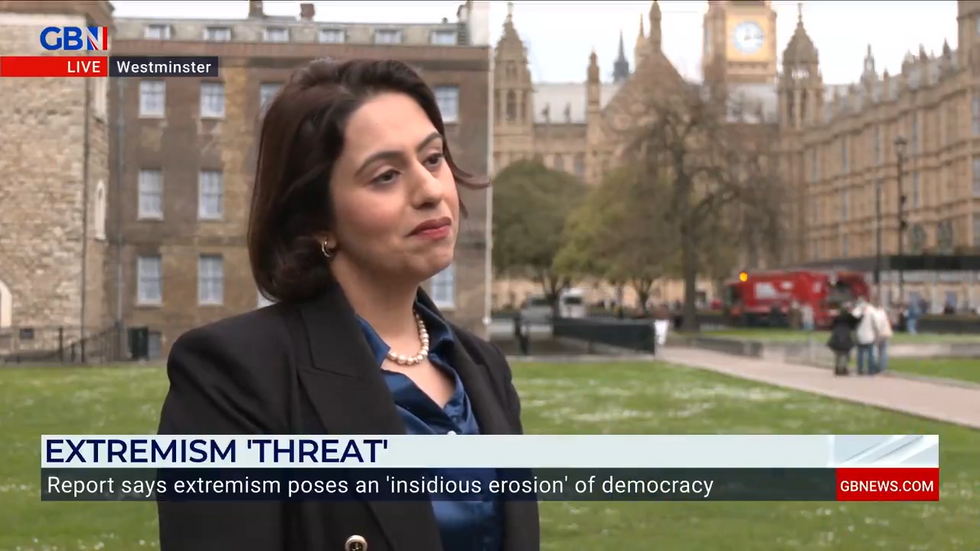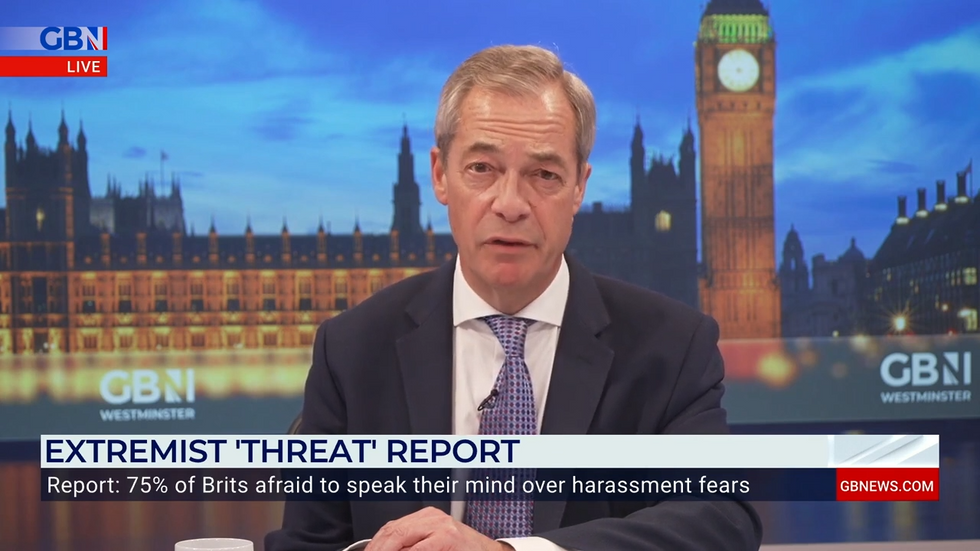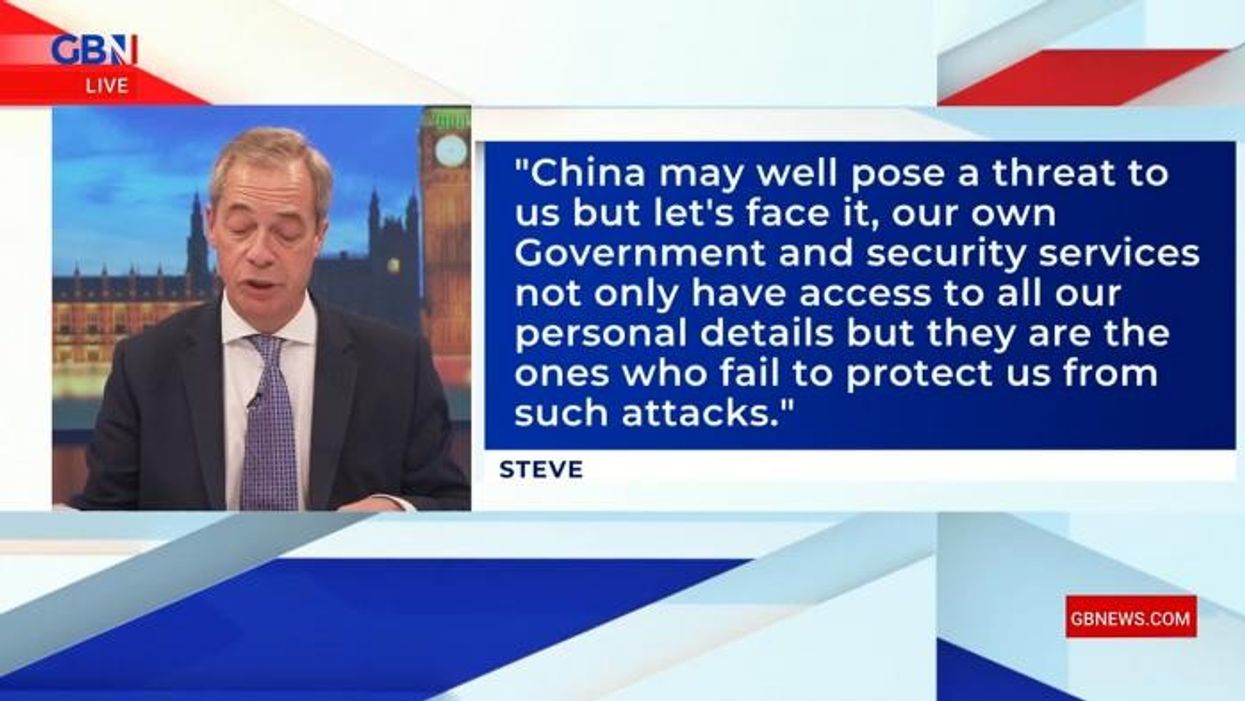Britons AFRAID to speak their minds over fear of being 'ostracised' by an 'EXTREMIST' threat
Three quarters of the public feel they cannot express their opinions due to fear of receiving abuse, according to the Government’s social cohesion adviser.
- Do you feel able to express your opinion?
- Join in the debate in the comments below.
Don't Miss
Most Read
Trending on GB News
More In Common’s Luke Tryl has spoken out about the new report that claimed three quarters of the public are afraid to express their view due to fear of receiving abuse.
Dame Sara Khan told GB News yesterday: “What I described in my report is this phenomenon called freedom-restricting harassment, which is when people experience or witness threatening intimidating or abusive harassment, either online or offline, which is then intended to make individuals or institutions self-censor out of fear.
“What our polling shows is that around three quarters of the British public feel that they cannot share their personal opinion public out of fear of receiving freedom-restricting harassment, and you'll be aware that there's been a lot of debate over the last couple of months, even years about how parliamentarians and those in public life have been at the forefront of such abuse and harassment.
“What my report shows for the first time is that this is a much broader phenomenon, where people such as academics and teachers, councillors, journalists, civic society activists, people working in the arts and cultural sector, are experiencing this awful kind of freedom-restricting harassment which not only stifling individual liberty, but it's undermining social cohesion and eroding democratic rights and freedoms in our society.”

Luke Tryl outlined some abuse that he saw whilst he worked in the Department for Education
GB News
Speaking about the report to Farage, Luke Tryl said: "I used to work in education for Ofsted. I was a special adviser in the Department for Education. What I saw there were those protests in Birmingham, outside schools for their sex education content.
"What you got was people who weren't parents of the school coming in, hijacking these protests and abusing teachers just doing their job and teaching.
LATEST DEVELOPMENTS
- 'This is why we're tackling extremism': Sunak slams 'unacceptable' treatment of Batley teacher in hiding
- ‘We don’t do tough!’ Kelvin Mackenzie SLAMS deputy PM as ‘WASTE of space’ over China cyber attack
- 'Britain does have a serious social cohesion problem, but the way to combat it is not to abandon our democratic traditions of free expression'
"One of the recommendations Sara makes is that report is that perhaps we need a buffer zone outside of schools to protect the school up to 150 meters not for industrial action and not for strikes, but for things like we saw in Birmingham to make sure that teachers aren't facing that abuse, just going into school and doing their job."
Nigel asked his: "So is the big fault line here religion?"

Dame Sara Khan's report came out yesterday
GB News
He responded: "It's one of the big fault lines. Certainly. There are lots of the examples which Sara documents. Some are religious, but there are also examples of far right activity.
"Also debates around trans and gender critical conflicts, there's a huge range.
"There's even one example, and I know this will be particularly disturbing to you, where she talks about comedians who have sympathy for Brexit, and are not being willing to express their views because they think they'll be ostracised.
"The truth is we all self-censor a little bit because British people are decent. We don't want to be rude.

Nigel Farage said "people don't want to incite hate"
GB News
Nigel added: "We don't want to incite hate or purposefully offend."
He said: "Exactly , what this report is talking about is something deeper than that."
"It's where people are afraid of expressing their beliefs because they're worried about the consequences.
"Some of that might be the policing of language, but a lot of it, and the body of the report, is actually about people facing threats from extremist group









